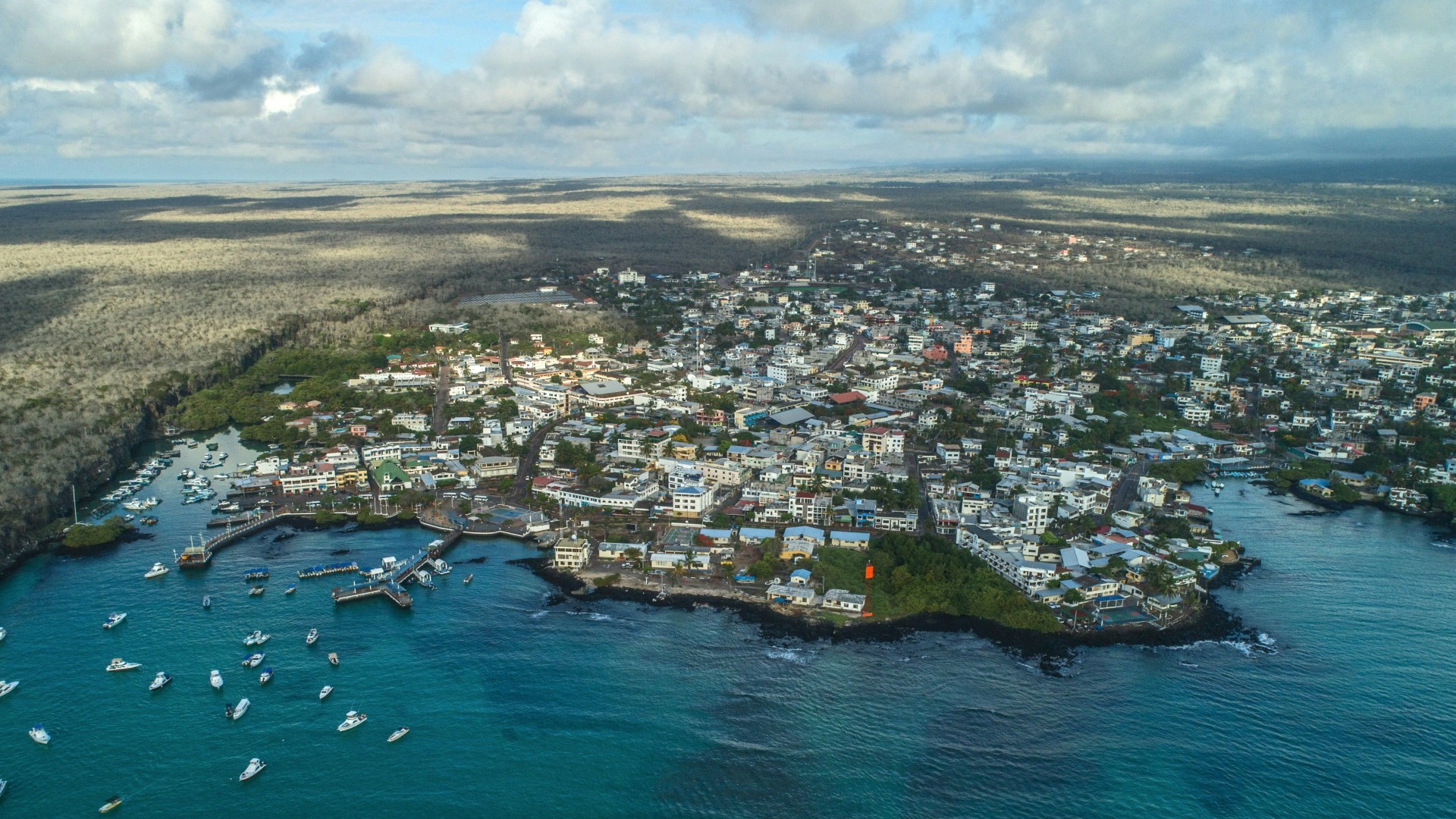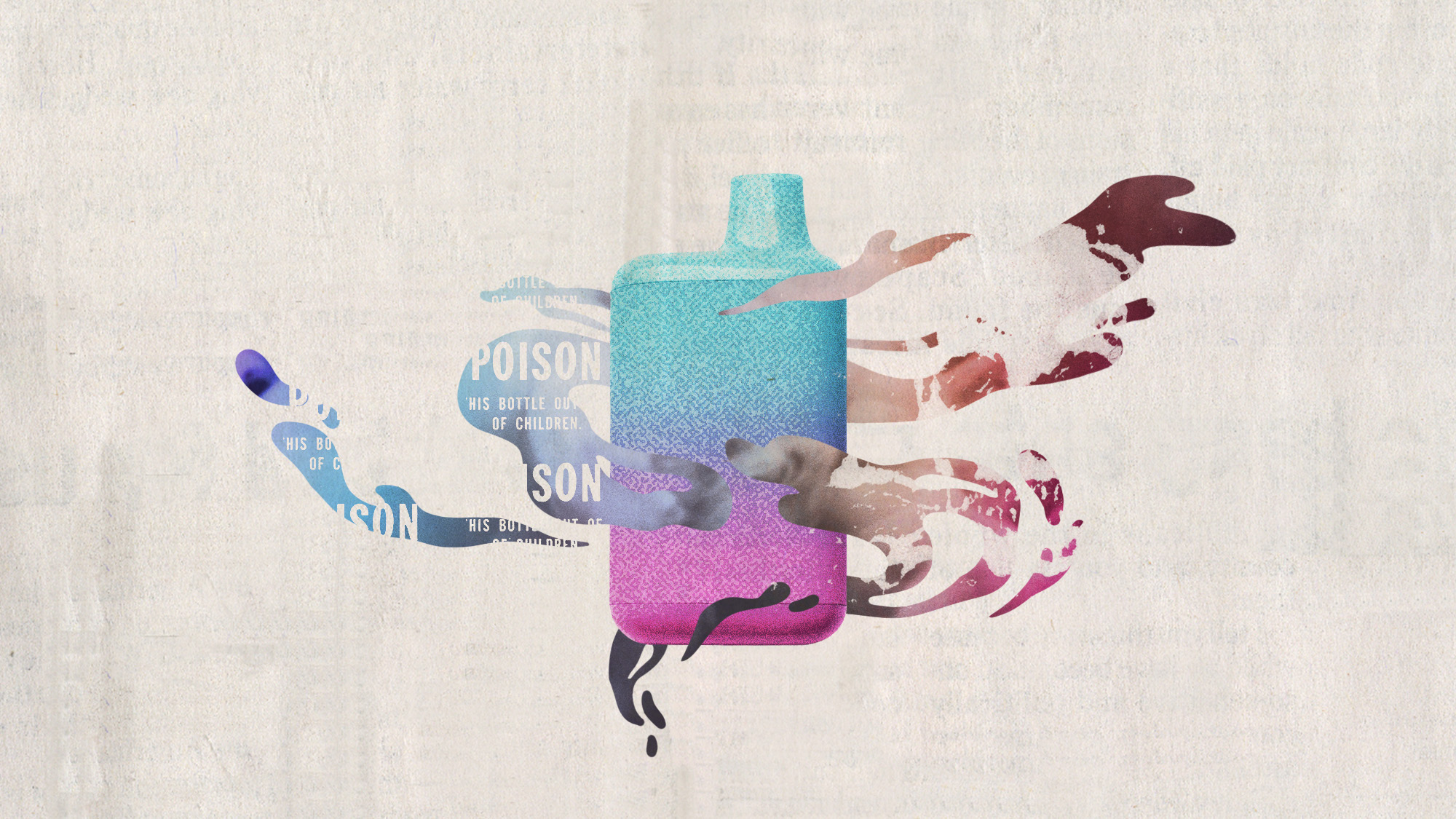How the idyllic Galapagos Islands became staging post in world drug trade
Ecuador's crackdown on gang violence forces drug traffickers into Pacific routes to meet cocaine demand

A free daily email with the biggest news stories of the day – and the best features from TheWeek.com
You are now subscribed
Your newsletter sign-up was successful
Charles Darwin once described Isabela as "the most desolate of the Galápagos Islands".
Now, more than 100,000 tourists visit the white sandy beaches of this "almost extraterrestrial outpost" every year, said The Washington Post, with the crowds attracted by "the giant tortoises and marine iguanas found nowhere else in the world".
But the "beloved Unesco World Heritage site" is being pulled into "the booming drug trade consuming much of Latin America". Last year the US navy seized nearly 25 tons of cocaine around the Galápagos Islands, reported Samantha Schmidt and Arturo Torres for the paper: a 150% surge from the year before, and up from just one ton in 2019.
The Week
Escape your echo chamber. Get the facts behind the news, plus analysis from multiple perspectives.

Sign up for The Week's Free Newsletters
From our morning news briefing to a weekly Good News Newsletter, get the best of The Week delivered directly to your inbox.
From our morning news briefing to a weekly Good News Newsletter, get the best of The Week delivered directly to your inbox.
The idyllic islands have become known as the "petrol station of the Pacific", said The Daily Telegraph, where traffickers stop to refuel. Smugglers are increasingly turning to long ocean routes to smuggle drugs out of the continent via Ecuador, and meet growing global demand for cocaine.
Ecuador was once a peaceful "symbol of stability", but violence and drug activity there has skyrocketed in recent years, said Graham Keeley for the i news site, as gangs vie for control of trafficking networks. It plunged into further chaos this month when gangs declared violent war on the government, in revenge for new President Daniel Noboa declaring a state of emergency following the escape of the country's most notorious drug trafficker. "We are in a state of war," Noboa has said.
Ecuador, the new cocaine capital
Ecuador "was once spared the worst of the narco-warfare and insurgencies that have plagued Latin America", wrote Niko Vorobyov in The Spectator. "No longer."
"Strategically positioned next to Colombia and Peru", the world's most prolific cocaine producers, Ecuador has long acted as a transit point for traffickers moving the drug from South to Central America, said Vorobyov, freelance journalist and author of "Dopeworld".
A free daily email with the biggest news stories of the day – and the best features from TheWeek.com
But the 2016 peace process in Colombia, and disbanding of the Farc rebels, "left a cartel-shaped hole in the drug trade that was swiftly filled by Mexican narco-traffickers", he wrote.
Amid tightening security in Colombia, these gangs looked for easier ways to ship drugs to Europe or Australia, said Keeley for the i news site, where profits are higher than in the US.
They subcontracted Ecuadorian gangs for shipping, said Vorobyov. By 2019, "as much as a third" of Colombian cocaine was leaving through Ecuador's port city and economic capital, Guayaquil.
Some, bound for Australia, Europe and North America, "was hidden among cargos of Ecuador's most prized export: bananas", said Vorobyov. "If you used cocaine this week," he concluded, "there's a good chance it came through Ecuador".
Galápagos Islands, the 'petrol station of the Pacific'
In an attempt to evade Ecuador's crackdown, and "stricter US patrols in the Caribbean and North Atlantic", drug gangs have "turned to the Galápagos route" through the Pacific, said The Telegraph.
Boats are "harder to detect and trace in open seas", said the paper. But this 600-mile detour means the vessels must refuel, and "the secluded labyrinth of waterways through the 127 islands" offers "the perfect cover".
Many fishermen around the islands are "taking advantage of government-subsidised fuel" to engage in "the lucrative business of gas smuggling", Samantha Schmidt and Arturo Torres reported for The Washington Post.
Navy officials told the paper that fishermen who save their discounted fuel for smugglers can earn up to $30,000 per job. "Lots of people have become millionaires off of this," one anonymous fisherman told the paper.
The vast waters around the islands are extremely difficult for authorities to monitor. Ecuador is responsible for nearly 500,000 square miles of ocean, about five times the size of its land mass. US presence on the coastline is "minimal", added Schmidt and Torres, since former Ecuadorian president Rafael Correa "ousted" US forces from a military base near the port city of Manta.
Correa's decision "was like an invitation to the drugs gangs", Carlos Malamud of the Madrid-based think-tank Real Elcano Institute told the i news site.
The cash-based local economy on the islands also creates "ideal conditions for money laundering", said Schmidt and Torres, while airports and docks "have little to no security". Many inhabitants are "afraid to report" illicit activity, as everyone knows each other in the small population. Drug trafficking on the archipelago is an "open secret".
"Little by little, the drugs are taking over the island," one inhabitant of Isabela told the paper. "And there is no help."
Harriet Marsden is a senior staff writer and podcast panellist for The Week, covering world news and writing the weekly Global Digest newsletter. Before joining the site in 2023, she was a freelance journalist for seven years, working for The Guardian, The Times and The Independent among others, and regularly appearing on radio shows. In 2021, she was awarded the “journalist-at-large” fellowship by the Local Trust charity, and spent a year travelling independently to some of England’s most deprived areas to write about community activism. She has a master’s in international journalism from City University, and has also worked in Bolivia, Colombia and Spain.
-
 Health insurance: Premiums soar as ACA subsidies end
Health insurance: Premiums soar as ACA subsidies endFeature 1.4 million people have dropped coverage
-
 Anthropic: AI triggers the ‘SaaSpocalypse’
Anthropic: AI triggers the ‘SaaSpocalypse’Feature A grim reaper for software services?
-
 NIH director Bhattacharya tapped as acting CDC head
NIH director Bhattacharya tapped as acting CDC headSpeed Read Jay Bhattacharya, a critic of the CDC’s Covid-19 response, will now lead the Centers for Disease Control and Prevention
-
 Epstein files topple law CEO, roil UK government
Epstein files topple law CEO, roil UK governmentSpeed Read Peter Mandelson, Britain’s former ambassador to the US, is caught up in the scandal
-
 Mexico’s vape ban has led to a cartel-controlled black market
Mexico’s vape ban has led to a cartel-controlled black marketUnder the Radar Cartels have expanded their power over the sale of illicit tobacco
-
 Iran and US prepare to meet after skirmishes
Iran and US prepare to meet after skirmishesSpeed Read The incident comes amid heightened tensions in the Middle East
-
 Israel retrieves final hostage’s body from Gaza
Israel retrieves final hostage’s body from GazaSpeed Read The 24-year-old police officer was killed during the initial Hamas attack
-
 China’s Xi targets top general in growing purge
China’s Xi targets top general in growing purgeSpeed Read Zhang Youxia is being investigated over ‘grave violations’ of the law
-
 Panama and Canada are negotiating over a crucial copper mine
Panama and Canada are negotiating over a crucial copper mineIn the Spotlight Panama is set to make a final decision on the mine this summer
-
 Why Greenland’s natural resources are nearly impossible to mine
Why Greenland’s natural resources are nearly impossible to mineThe Explainer The country’s natural landscape makes the task extremely difficult
-
 Iran cuts internet as protests escalate
Iran cuts internet as protests escalateSpeed Reada Government buildings across the country have been set on fire